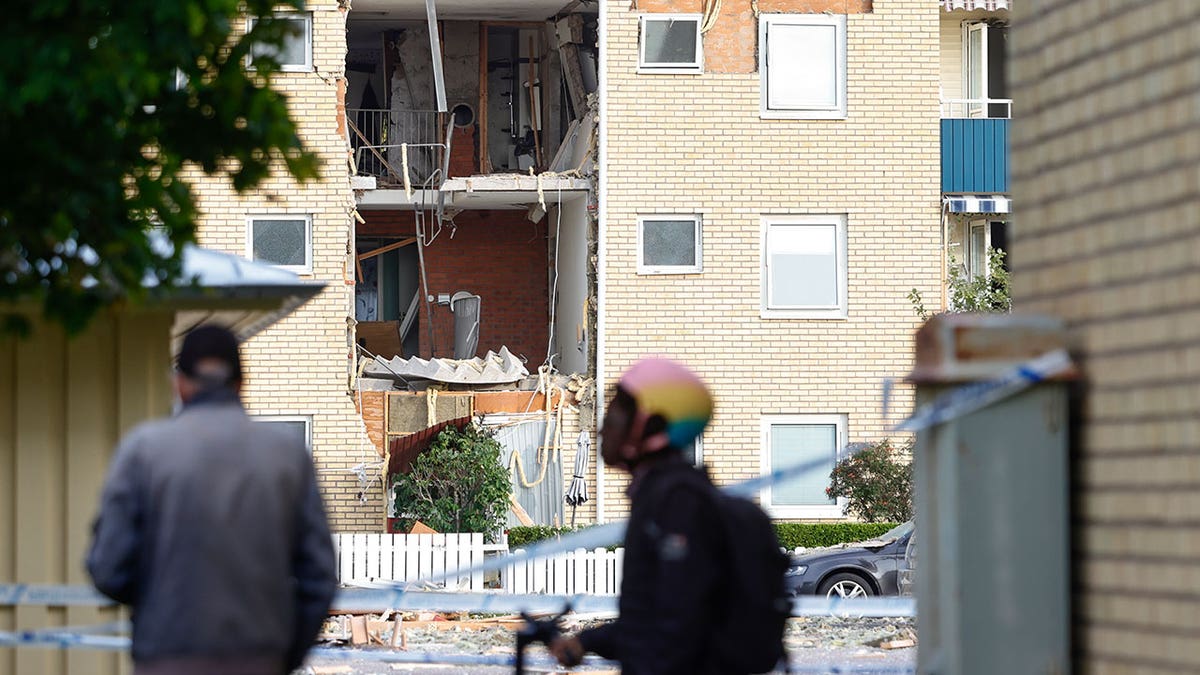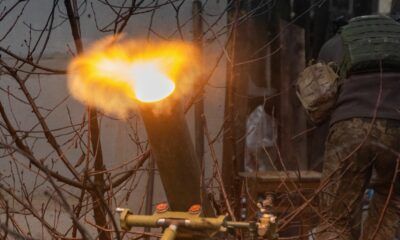INTERNACIONAL
2 powerful explosions rip through Sweden, injuring at least 3

Two powerful explosions have ripped through dwellings in central Sweden, injuring at least three people and damaging buildings, with bricks and window sections left spread outside.
Late Monday, an explosion occurred in Hasselby, a suburb of the capital, Stockholm. In the early hours of Tuesday, a blast in Linkoping, some 110 miles to the southwest, ripped the facade off a three-story building, leaving debris strewn across a parking area.
It was not known whether the blasts were related to each other.
POWER IS RESTORED IN NIGERIA AFTER NATIONWIDE OUTAGE CAUSED BY ELECTRICAL GRID FAILURE
Swedish radio said Tuesday that the explosion in Linkoping was connected to a feud between criminal gangs, a growing problem in Sweden with drive-by shootings and bombings. Two gangs — one led by a Swedish-Turkish dual national who lives in Turkey, the other by his former lieutenant — are reportedly fighting over drugs and weapons.
So far this year, there have been 261 shootings, 36 people have died and 73 were wounded. The count doesn’t include the latest explosions.

People look at the damages caused by an explosion in a residential building in Linköping, Sweden, on Sept. 26, 2023. (Stefan Jerrevång/TT News Agency via AP)
Police said that residents in the affected area in Linkoping were evacuated to a nearby sports facility. In Hasselby, three people were taken to a hospital. Their conditions were not known.
No one has been arrested, police said.
Following the explosions, the Swedish government said it will hold a meeting to identify measures that can be quickly implemented. Sweden’s ministers for justice and civil defense, Gunnar Strömmer and Carl-Oskar Bohlin, will participate along with other authorities, including representatives of the Scandinavian country’s municipalities and regions.
RUSSIA ASSAILED BY ALBANIAN PM AFTER FAILED ATTEMPT TO PREVENT UKRAINE PRESIDENT ZELENSKYY FROM SPEAKING AT UN
«We are now bringing together all relevant actors to jointly identify what can be done in the short and long term,» Strömmer told Swedish news agency TT.
«The criminals’ access to explosive goods must be cut off,» Bohlin told the Expressen newspaper.
Earlier this month, a 13-year-old boy was found shot in the head in woods not far from his home near Stockholm. A prosecutor said his death was a chilling example of «gross and completely reckless gang violence.»
CLICK HERE TO GET THE FOX NEWS APP
On Sept. 22, two people were killed and two wounded when a gunman opened fire in a crowded bar northwest of Stockholm. One of the dead, a 20-year-old man, was the shooter’s likely target, police said, while the other three were believed to be bystanders. The motive remained unclear. Police said the shooting could possibly be part of a local personal conflict and there was some uncertainty whether it was connected to the ongoing feud.
Sweden’s center-right government has been tightening laws to tackle gang-related crime, while the head of Sweden’s police said earlier this month that warring gangs had brought an «unprecedented» wave of violence to the country.
INTERNACIONAL
¿Quiénes son los hutíes y por qué los atacan EE-UU. e Israel?

¿Quiénes son los hutíes?
¿Considera Estados Unidos a los hutíes un grupo terrorista?
¿Por qué atacan a los barcos?
¿Cómo están afectando los ataques a los países de todo el mundo?
¿Qué ha estado haciendo Estados Unidos para detener los ataques?
¿Qué ha señalado Israel que hará?
-
INTERNACIONAL3 días ago
Rusia bombardeó Ucrania en la madrugada de Navidad: ataque masivo con misiles al sector energético
-
ECONOMIA3 días ago
Otro fallo de la Justicia para que no se aplique el Impuesto a las Ganancias al sueldo
-
POLITICA2 días ago
Marcela Pagano denunciará penalmente a los agentes de tránsito por el escándalo con los diplomáticos rusos
-
POLITICA2 días ago
Nueva amenaza de paro: ATE exige la renovación de 50.000 contratos estatales
-
POLITICA1 día ago
Otro diputado abandonó Unión por la Patria con críticas a la conducción de Cristina Kirchner: “Liderazgos del pasado”
-
POLITICA2 días ago
Ciberdelincuentes ingresaron a la página oficial del Gobierno y publicaron mensajes contra Javier Milei




























